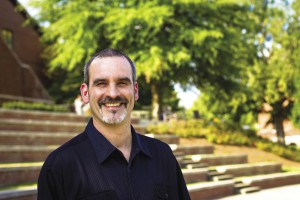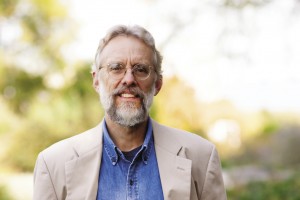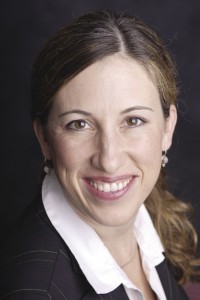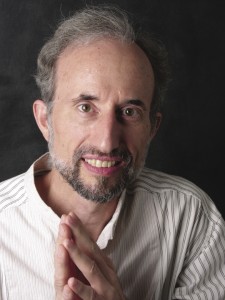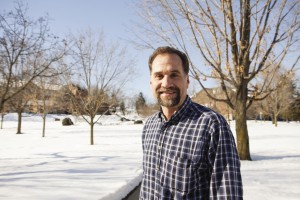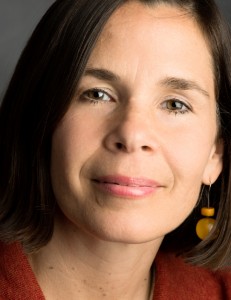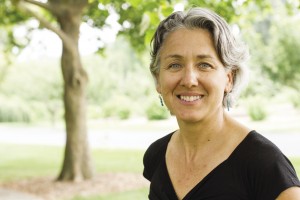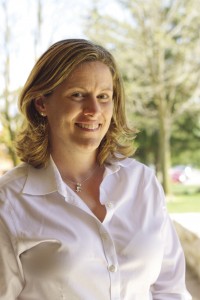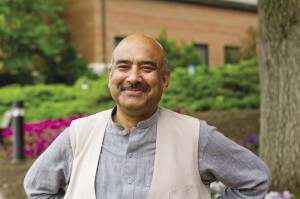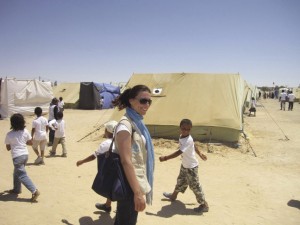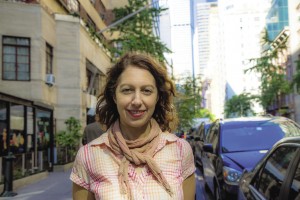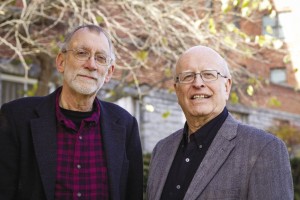 Howard Zehr, PhD, & Vernon Jantzi, PHD
Howard Zehr, PhD, & Vernon Jantzi, PHD
- Zehr is “distinguished professor” of restorative justice, a pioneer in international restorative justice field; author, co-author or editor of about 22 books pertaining to restorative justice
- Zehr’s bestselling Little Book of Restorative Justice (over 110,000 sold) was cited as a reference in Handbook on Restorative Justice Programmes, published in 2006 by UN Office on Drugs and Crime following UN conferences in 2000, 2002 and 2005.
- Former CJP director Vernon Jantzi served on Working Party of Restorative Justice, a major resource at UN Congresses on Crime Prevention and Criminal Justice in 2000 and 2005. WPRJ drafted basic principles on restorative justice adopted by UN Economic and Social Council.
- Jantzi, professor emeritus of sociology, now works for Strategies for Trauma Awareness and Resilience (STAR).
- Assistant professor of justice studies and co-director of EMU’s Zehr Institute for Restorative Justice
- As regional peace adviser in Southern Africa for Mennonite Central Committee, 2000-09, Stauffer was associated with peace accords, community-police forums, truth and reconciliation initiatives, and local community development structures, often interacting with UN agencies involved with post-conflict stability.
- The UN Secretary General’s 2004 Report on The Rule of Law and Transitional Justice in Conflict and Post-conflict Societies defines transitional justice as “the full range of processes and mechanisms associated with a society’s attempts to come to terms with a legacy of large-scale past abuses, in order to ensure accountability, serve justice and achieve reconciliation.”
- Stauffer elaborated on this theme in his “Restorative Interventions for Postwar Nations,” a chapter published in Restorative Justice Today – Practical Applications (Sage Publications, 2012).
- Professor of trauma, identity and conflict studies, former CJP academic dean
- Has conducted workshops on psychosocial trauma recovery and reconciliation in Northern Ireland, Liberia, Sierra Leone, Uganda, Burundi and among Rwandan refugees in Tanzania.
- Lived and worked for years in Balkans, launching trauma and conflict transformation programs for schools, communities, religious leaders.
- Collaborated with UNICEF personnel in Liberia to create the Kukatonen (We Are One) Peace Theatre, along with a manual of the same title, centered on these themes: understanding conflict, active listening, conflict resolution, reconciliation and trauma healing.
- Developed a training manual Za Damire I Nemire (For Peace and Not for Peace: Opening the Door to Nonviolence) for UNICEF while in Croatia.
- Collaborated with UN humanitarian and relief agencies when working in Liberia, Tanzania and the Balkans.
- Research professor
- Director of human security at the Alliance for Peacebuilding
- Senior advisor to “People Building Peace” conference held at UN headquarters in 2005, encompassing about 1,000 civil society peacebuilding delegates from 119 countries.
- Evaluator for the UN Peacebuilding Support Office to advise on grantmaking to support women in peacebuilding in 2011.
- Facilitated UNDP meeting in Fiji between military, government and civil society groups.
- Consultant to UNDP in 2012 to develop strategy for UNDP to fit into new UN Peacebuilding Architecture
- “The UN is central to the success of peacebuilding in many countries. UNDP has an opportunity to provide the link between short-term humanitarian response in the midst of a crisis and longer term support for building the foundations of peace. UNDP is also one of the few institutions that is positioned to bring together civil society, governments, international NGOs and donors to work together to support strategic peacebuilding.”
- Founding faculty member of CJP (’76 graduate of sister college, Goshen), current Senior Advisor on Peacebuilding and Development United Nations, assigned by UNDP to Philippines, previously assigned to Lesotho
- Supports peace process in Mindanao.
- Worked behind scenes, 2009-13, to nurture peaceful elections in Lesotho.
- Supported process led by Lesotho heads of churches, working with gridlocked parliament to negotiate electoral agreement among political parties to pursue free and fair elections.
- Effort yielded Lesotho’s first free, fair and peaceful election since independence in 1966.
- Facilitated visit to Lesotho of Archbishop Desmond Tutu, who oversaw signing of political pledge that committed parties to respect laws and accept outcome of election.
- “Mediation, facilitation and process design lie at the heart of almost all that I do; I strengthen human capacities to respond constructively to conflict.”
- Associate professor of organizational studies, co-author of The Little Book of Healthy Organizations.
- Hired by UNICEF-Mozambique for peace education and conflict resolution trainings immediately after peace accord signed in 1992.
- On joint project of Mennonite Central Committee and World Council of Churches, interacted with UNHCR staff at Benako refugee camp in Tanzania in 1994.
- Applauds UN for work on human development, women’s rights, indigenous rights, and awareness of environmental perils. But adds: “The UN’s basic structure hasn’t changed since it was founded 68 years ago. Healthy organizations need to undergo a structural review process every three to five years to ensure that their structure is still meeting their mission and objectives.”
- “My main issue is with the UN Security Council, where the veto power of the five permanent members often blocks meaningful international action, as seen in the cases of Israel and Syria.”
- Associate professor of strategic peacebuilding and public policy
- Has been engaged with UN since the early 1990s, when helped conduct trainings in conflict analysis and resolution for diplomats and staff.
- Regularly involved in policy dialogue in the UN on peace processes, especially how to increase public participation for inclusive and comprehensive settlements and effective use of sanctions, incentives and conditionality.
- Served as advisor during 2002-05 to Global Partnership for the Prevention of Armed Conflict and participated in UN discussions on roles of civil society in preventing armed conflict and building peace.
- Helped design and facilitate 2005 conference on this theme at UN headquarters in NYC, which involved about 1,000 people from civil society, governments and IGOs from around the world, including CJP alumni, faculty, staff, and partners.
- Associate professor of the practice of media arts and peacebuilding
- As MA student, did practicum with Community Development Gender Equality and Children, an agency within UNHCR. There created a blog – itbeginswithme.wordpress.com – launched on International Women’s Day in March 2009.
- Next, as UNHCR consultant, worked on films in Kenya’s Kakuma refugee camp, along with a blog, in collaboration with a young woman filmmaker in that camp named Kate Ofwano, who is now in film school in Geneva.
- Moore recalls leaving career in corporate media to become more invested in community. “I didn’t want to keep being the kind of person who would helicopter in somewhere, do something, and helicopter back out,” as she thought UN personnel often did.
- Experience at UNHCR made her aware of a third way: “To partner with people who I really, really trust. Big organizations and community-based work aren’t necessarily exclusive.”
- CJP practice coordinator
- Worked and lived in Haiti for 7.5 years total
- Worked with UNDP “disarmament, demobilization and reintegration”program 2006-07, on team to reintegrate gang members into society, often using stipends, vocational training, and cash to start small businesses.
- Didn’t work – community members were fearful; program heightened conflict rather than transformed it – i.e., it was not “conflict sensitive.”
- UN workers were required to wear bullet-proof vests and helmets, circulating with armed escorts when in dangerous urban areas. “This sent an uncomfortable message – were the UN workers’ lives more important than the Haitians’?’’
- With the UNDP at that time, “relationship-building and trust weren’t really there. There were civil society groups in existence in the communities where this project was working. But the UNDP didn’t work directly with these groups. They created new ones that conformed to the vision they’d dreamed up for the project – without the input of local groups that knew what things were really like.”
- The UNDP had $14 million to spend in this Haitian case: “The UN has a huge potential to reach many stakeholders, but attention must be given to conflict analysis.”
- Founding director Just Peace Initiatives (JPI) in Pakistan
- Was commissioner, 1987-2001, on UNHCR-funded project for 258 Afghan refugee camps, concentrating on community development, peacebuilding, drug use and HIV/AIDS, the plight of street children.
- Has partnered with UNDP, UNICEF, UNHCR and UNFPA to address humanitarian situations – when much of Pakistan was affected by devastating flooding; when 50 primary schools in Bajur Tribal Agency needed clean water and sanitation facilities; when four areas were assisted in restoring their livelihoods, building community-based infrastructure, and improving their governance.
- With UNICEF funding, JPI now working on two unprecedented projects on social cohesion and resilience in three areas – SWAT, DIR, and Bajur.
- With UNFPA funding, JPI addressing gender-based violence cases through alternative dispute resolution in camps housing large numbers of host-community and internally displaced peoples.
- Project Development Officer, UN High Commissioner for Refugees (UNHCR), now based in London, England
- Native of Syria employed by UNHCR, 2006-11, delivering direct support to refugees and displaced peoples due to violent conflict in such countries as Syria, Jordan, Lebanon, Kuwait, Libya, Tunisia, and Yemen.
- “My work now [beginning in 2012] is more of coordination of private sector fundraising in support of various operations around the world, because most of the operations are underfunded, and refugees and displaced are in dire need of every support, even if little.”
- “UNHCR is present in every conflict area to help, with dedicated and passionate staff.”
- “The agency does not have a political mandate to influence political peacemaking. But I see it as one of the most effective peacemakers on the ground, with its efforts to reduce the suffering and to call the international community to show compassion and participate in sharing the burden of helping.”
- “Often when I am in the middle of something problematic, I find myself recalling CJP classes or a discussion with a CJP professor regarding organizations, theory, human rights, practices in conflict transformation, mediation and restorative justice.”
- “Most importantly, I remember STAR (Strategies for Trauma Awareness and Resilience) – I try to always find ways to take care of myself and to recall that self-care is important, if I am to help others.”
- Manager of NYC-based stage productions; conflict and peacebuilding consultant
- Presented arts-based approaches to peacebuilding to UN Interagency Framework Team for Preventive Action
- Did practicum for her MA at UNHCR in the Community Development, Gender Equality and Children section.
- Promoted AGDM (age, gender and diversity mainstreaming), whereby refugee women, men, boys and girls contribute to the design and implementation of programs, identify own protection risks, and participate in finding sustainable solutions.
- Helped develop the Heightened Risk Identification Tool, a field tool used to identify refugees at risk.
- “To be part of work that was engaging in long-term change processes – seeing refugees as active partners instead of passively waiting for a handout – was incredibly meaningful.”
